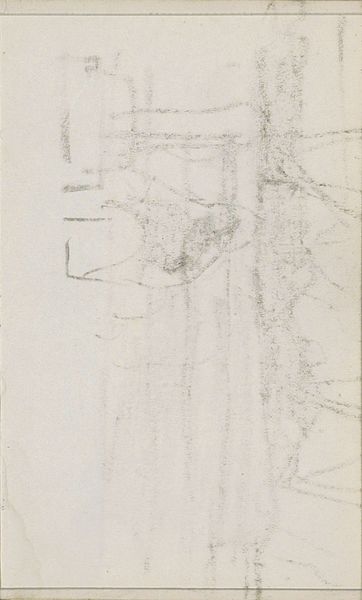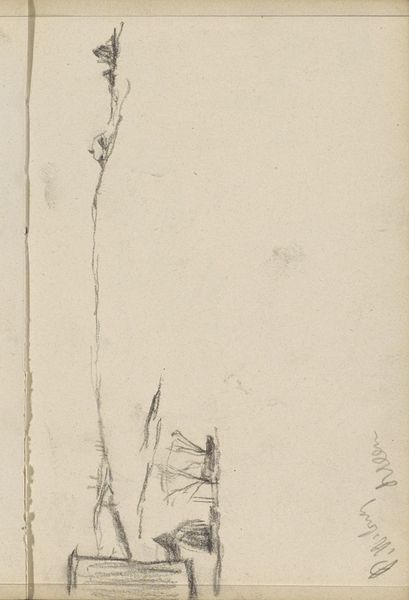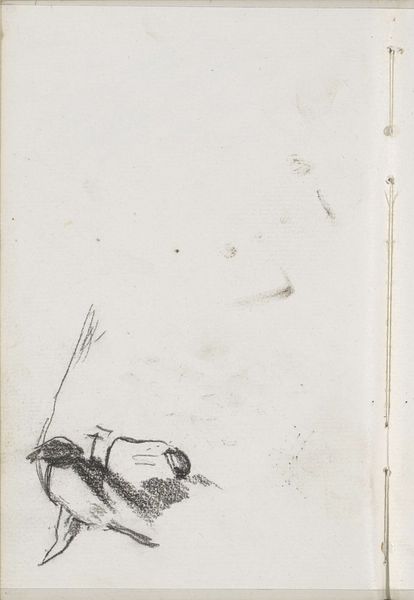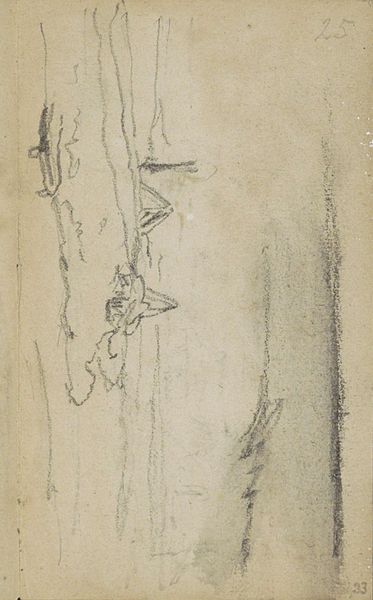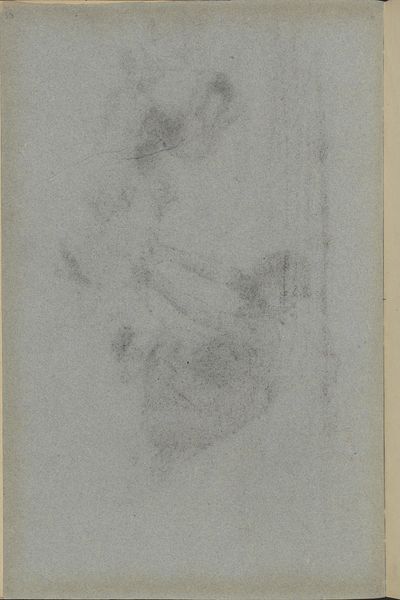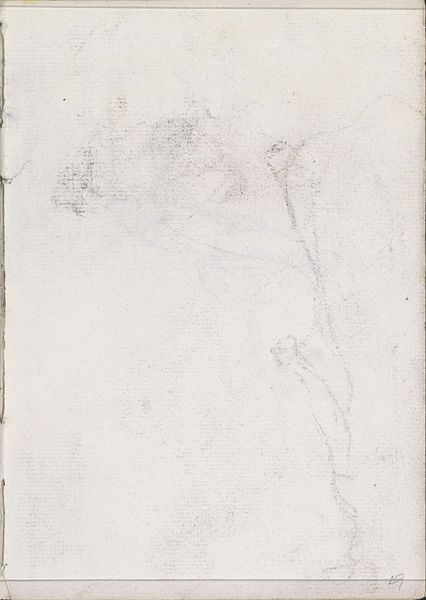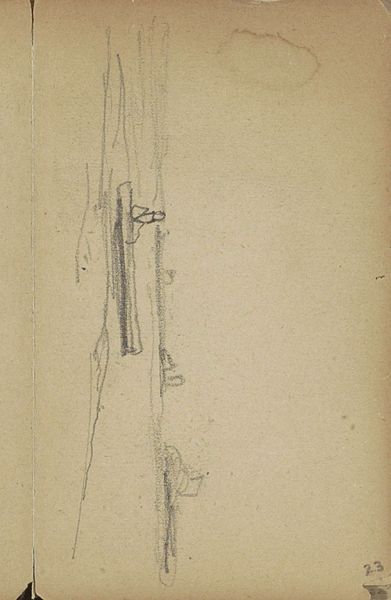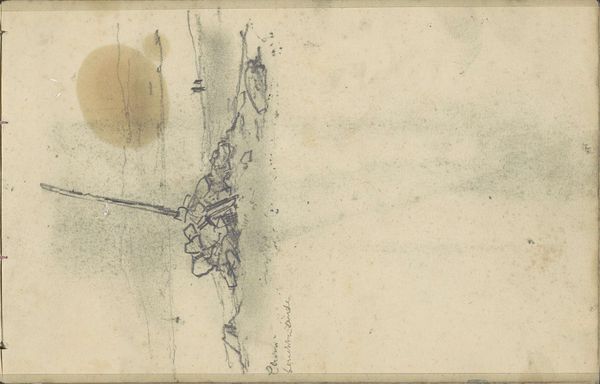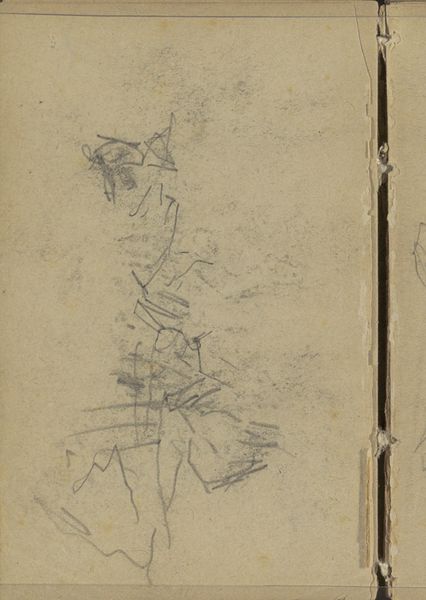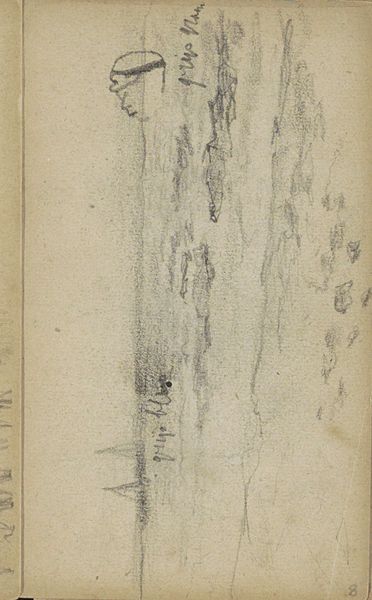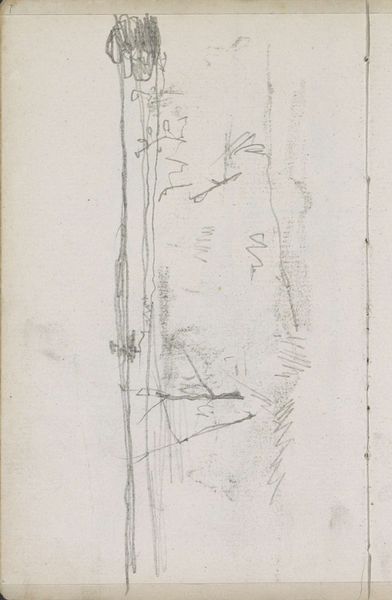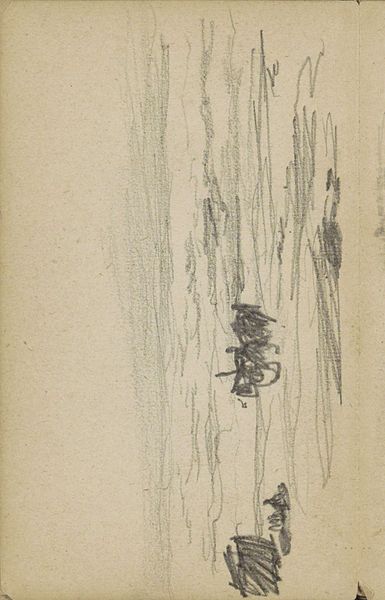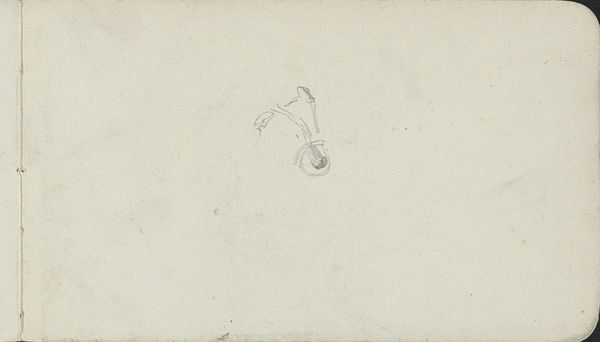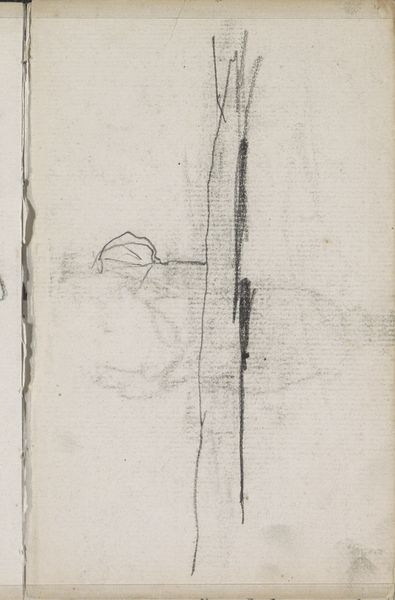
#
amateur sketch
#
light pencil work
#
pencil sketch
#
incomplete sketchy
#
personal sketchbook
#
ink drawing experimentation
#
pen-ink sketch
#
sketchbook drawing
#
sketchbook art
#
initial sketch
Copyright: Rijks Museum: Open Domain
Curator: Johan Hendrik Weissenbruch’s "Studies," likely from between 1834 and 1903, offers such a wonderfully intimate peek into the artist's process. Editor: My first thought is of ephemerality. These pencil strokes are so light, almost like a breath on the page, suggesting a fleeting moment captured, or perhaps even discarded. It's like finding a fossil – evidence of artistic labor laid bare. Curator: I love that image of breath! It's exactly what comes to mind: each mark holds the whisper of an idea taking form, then gently fading, being worked out. The lines certainly speak of exploration rather than concrete certainty. I mean, what is the artist trying to represent with his pencil? A shoe? Editor: Well, I see the rough beginnings of figures – human or animal, it's hard to say precisely. To me, this piece spotlights the economics of art production. Sketchbooks would have been a practical, cost-effective medium for Weissenbruch, a means to an end in developing larger, more commercially viable projects. Curator: And I think your materialist reading complements that feeling of transience! He captures light and form but doesn’t solidify it. To think of art-making as essentially a capitalist endeavour is too simplistic and reduces artistic agency to only market-based dynamics, what about the practice for practice's sake, as they say? Editor: Fair point – although the use of easily-sourced paper and graphite challenges the romantic view of the solitary genius. Weissenbruch wasn't limited to the "high" materials and spaces of official academic art. Curator: But that makes me love the feeling of it even more! This wasn't meant for public display. The materiality underscores its authenticity—raw, unpretentious—the very opposite of commodity fetishism. What do you think somebody in a hundred years, if we’re all still around, will think of it then? Editor: Perhaps that the means of artistic creation and access will become democratized even further through technology. Curator: Let’s hope. Thanks, I’m off for some fresh air to work it all through! Editor: Absolutely, me too, some real sunlight this time, instead of only thinking about the drawings.
Comments
No comments
Be the first to comment and join the conversation on the ultimate creative platform.
